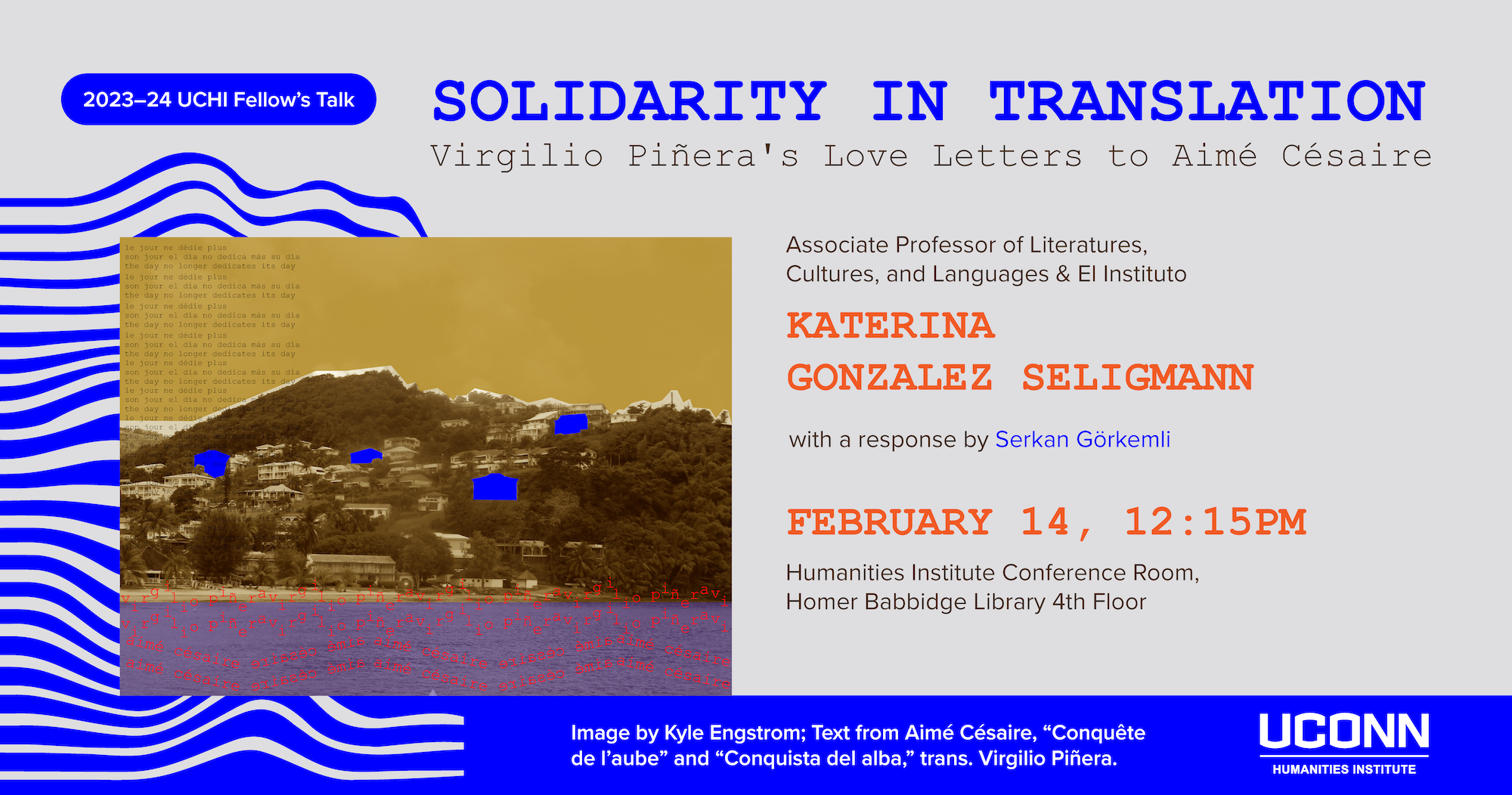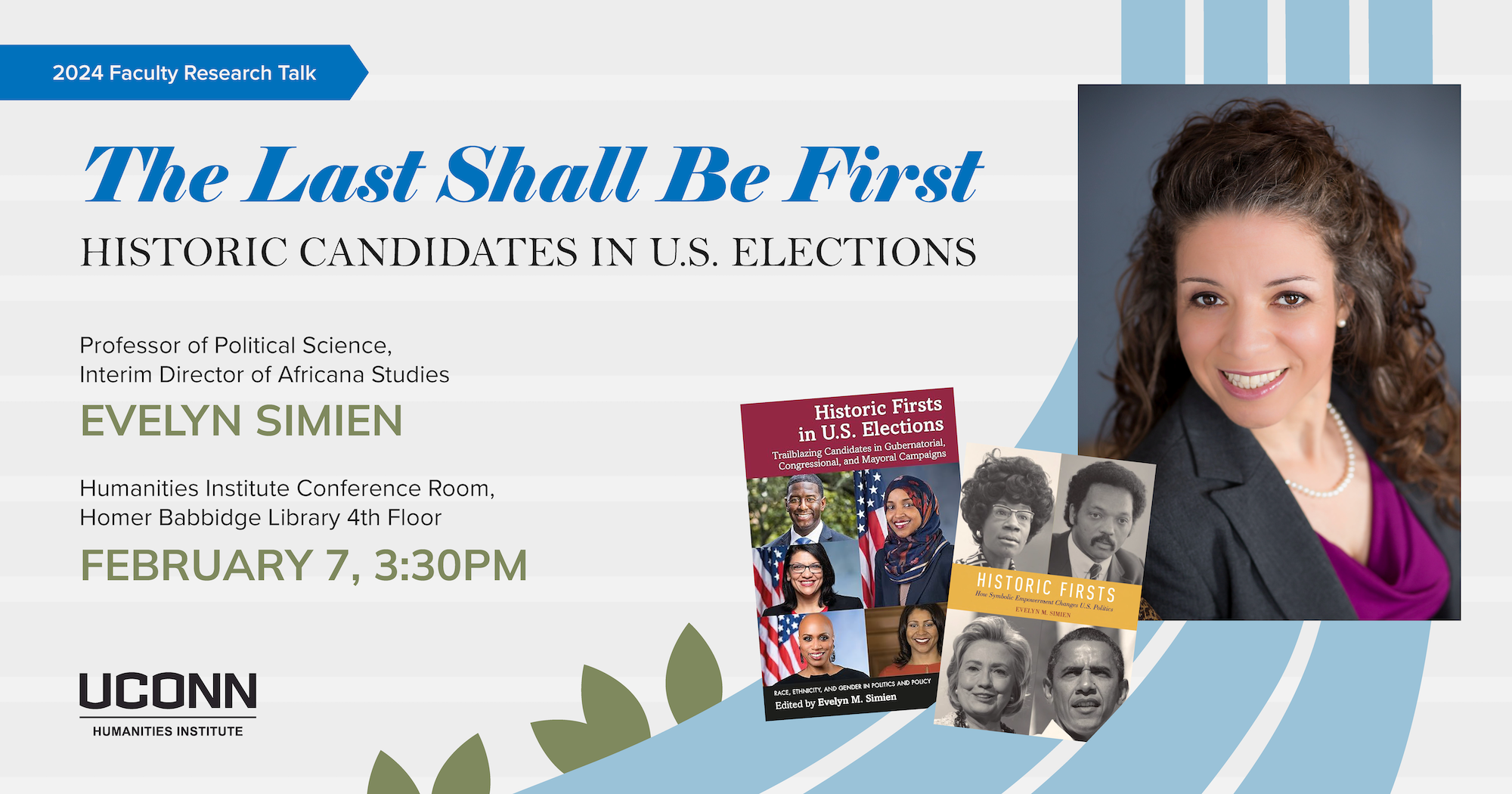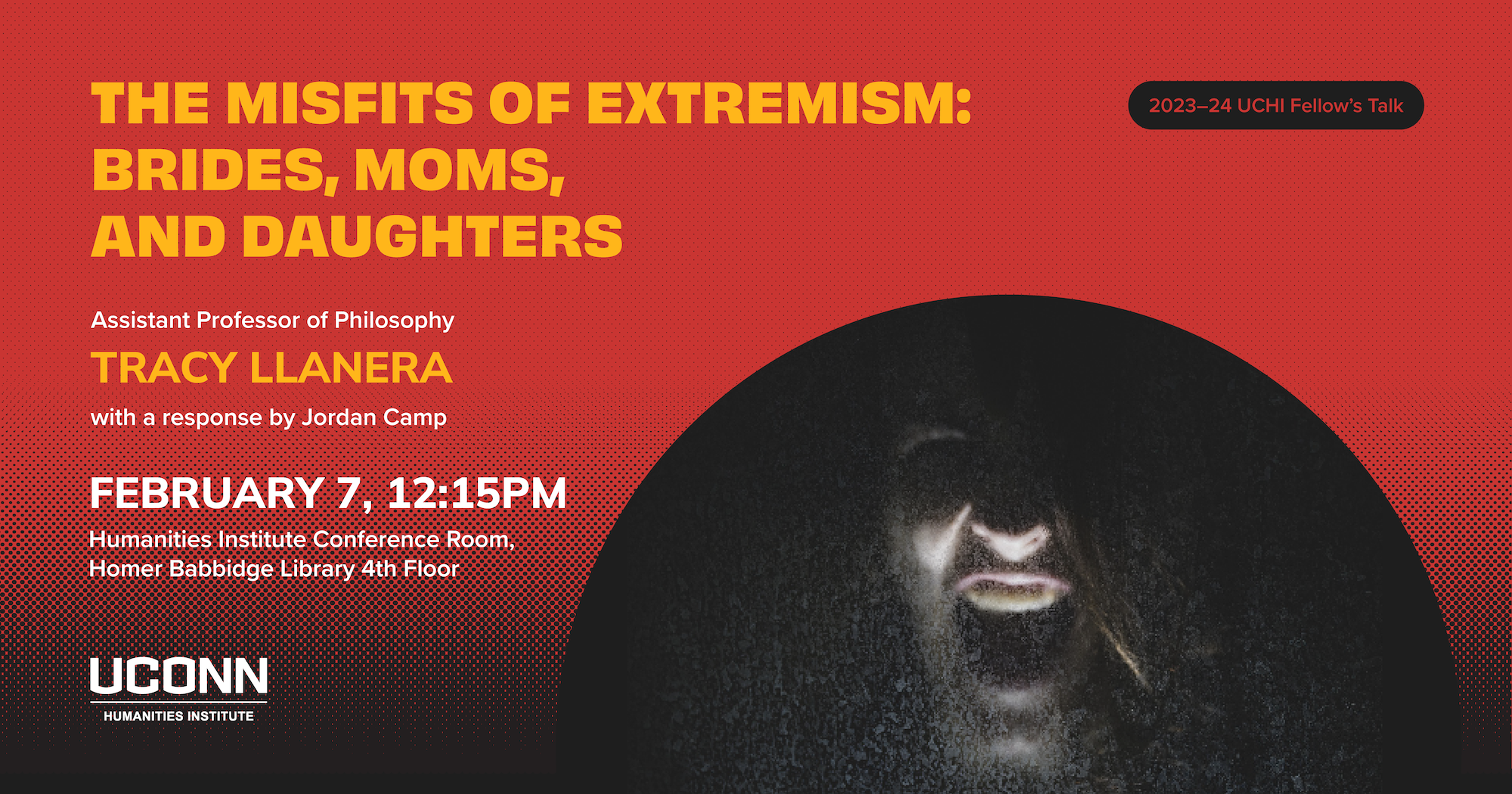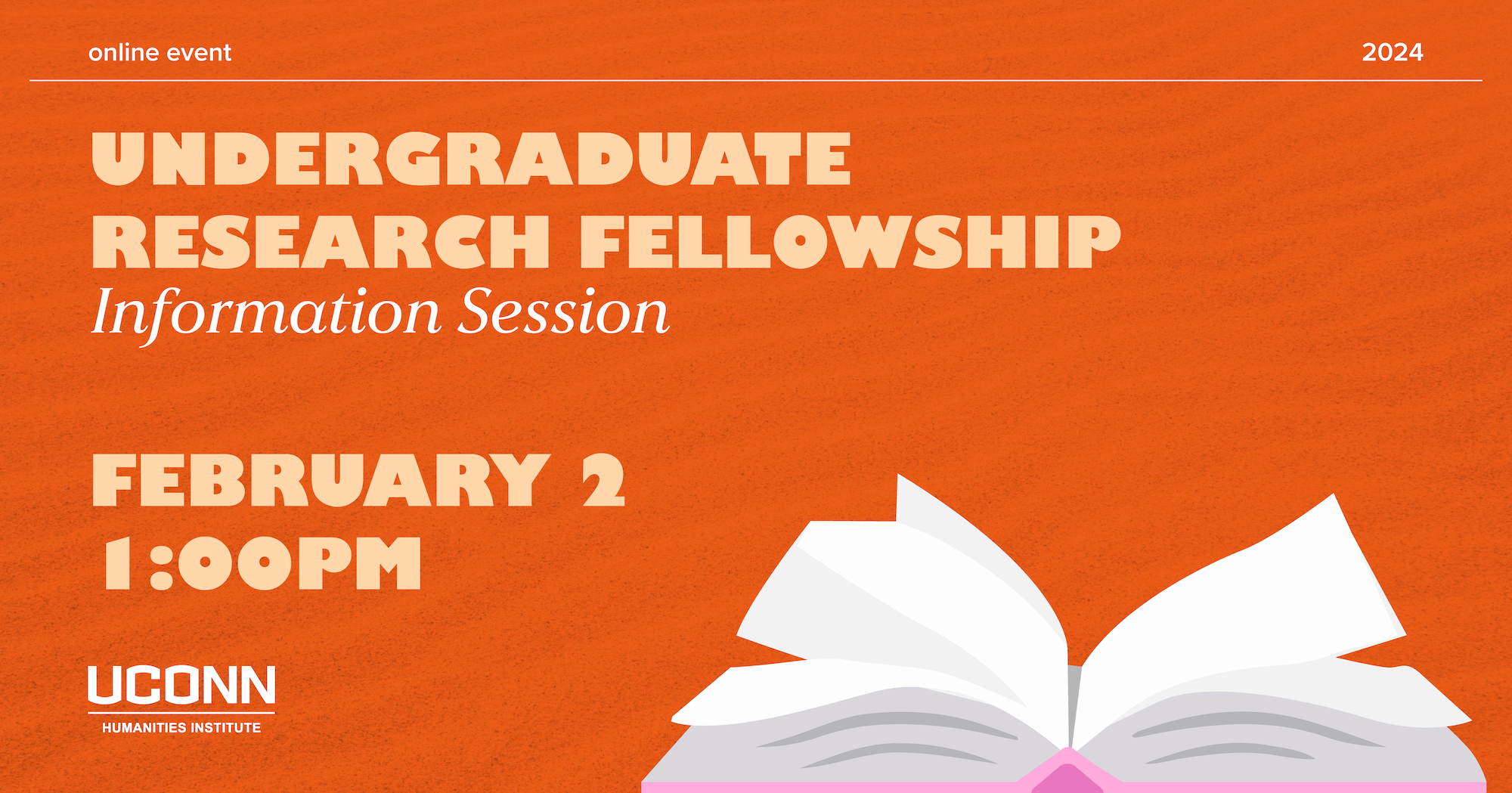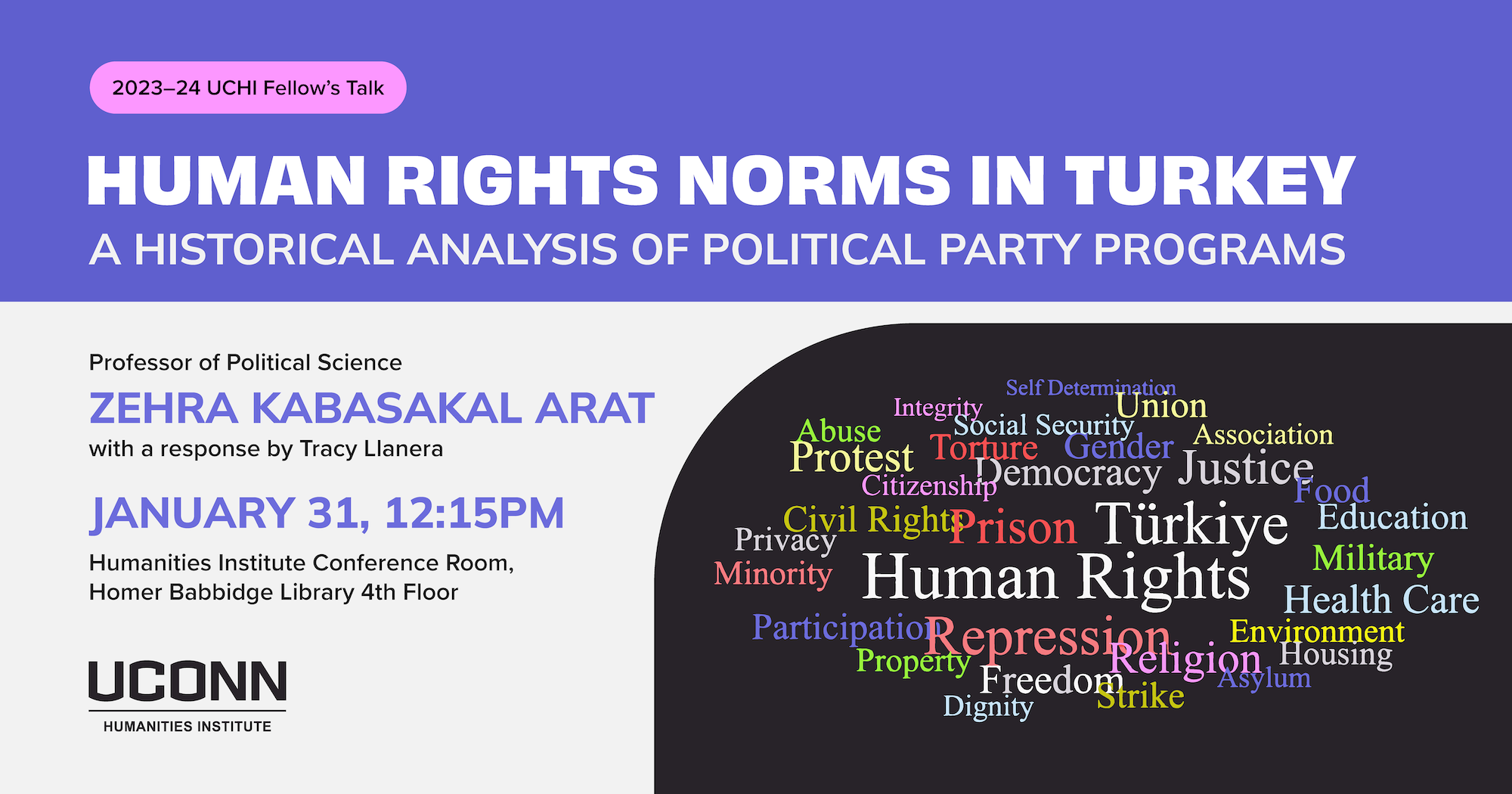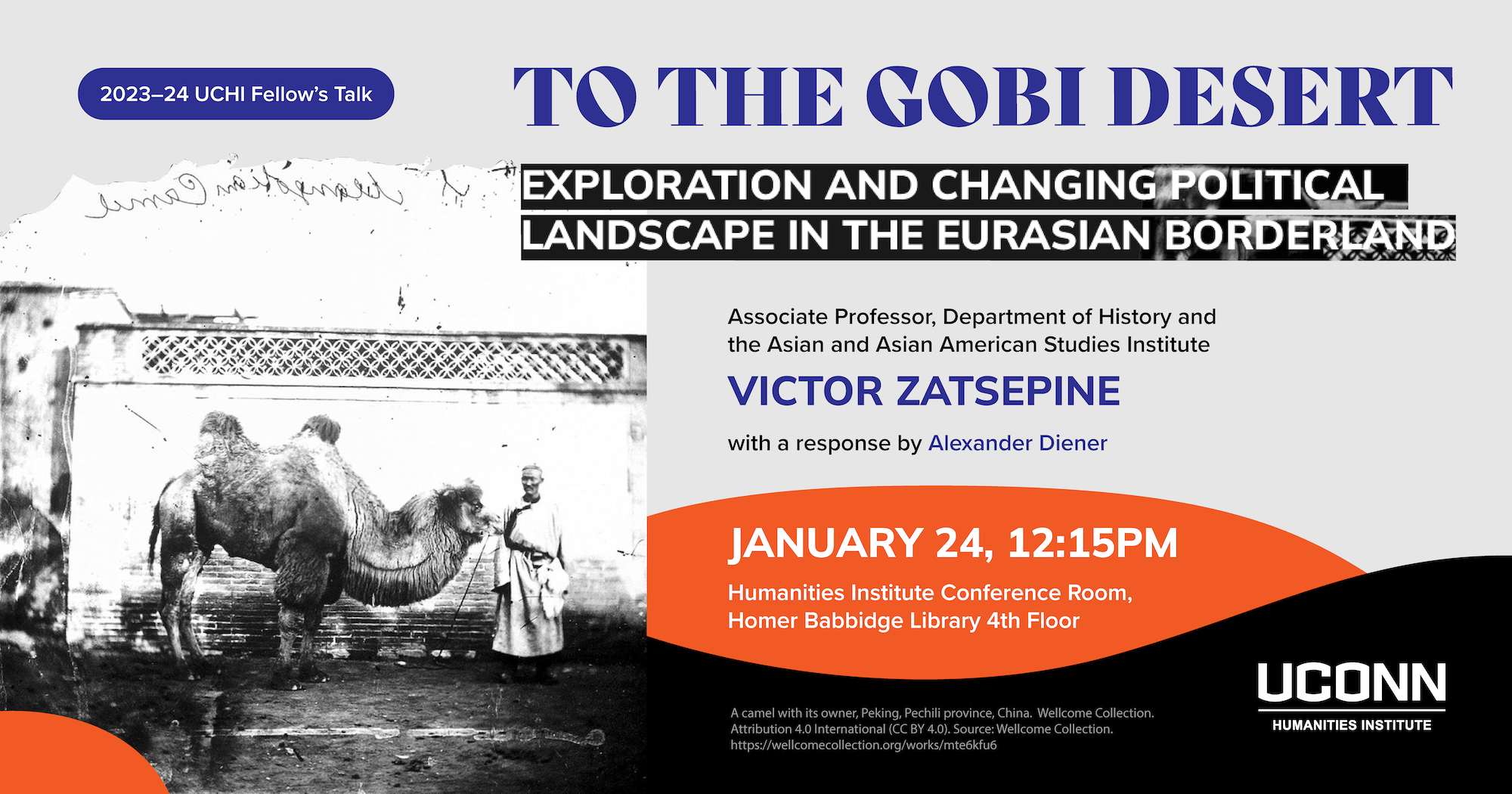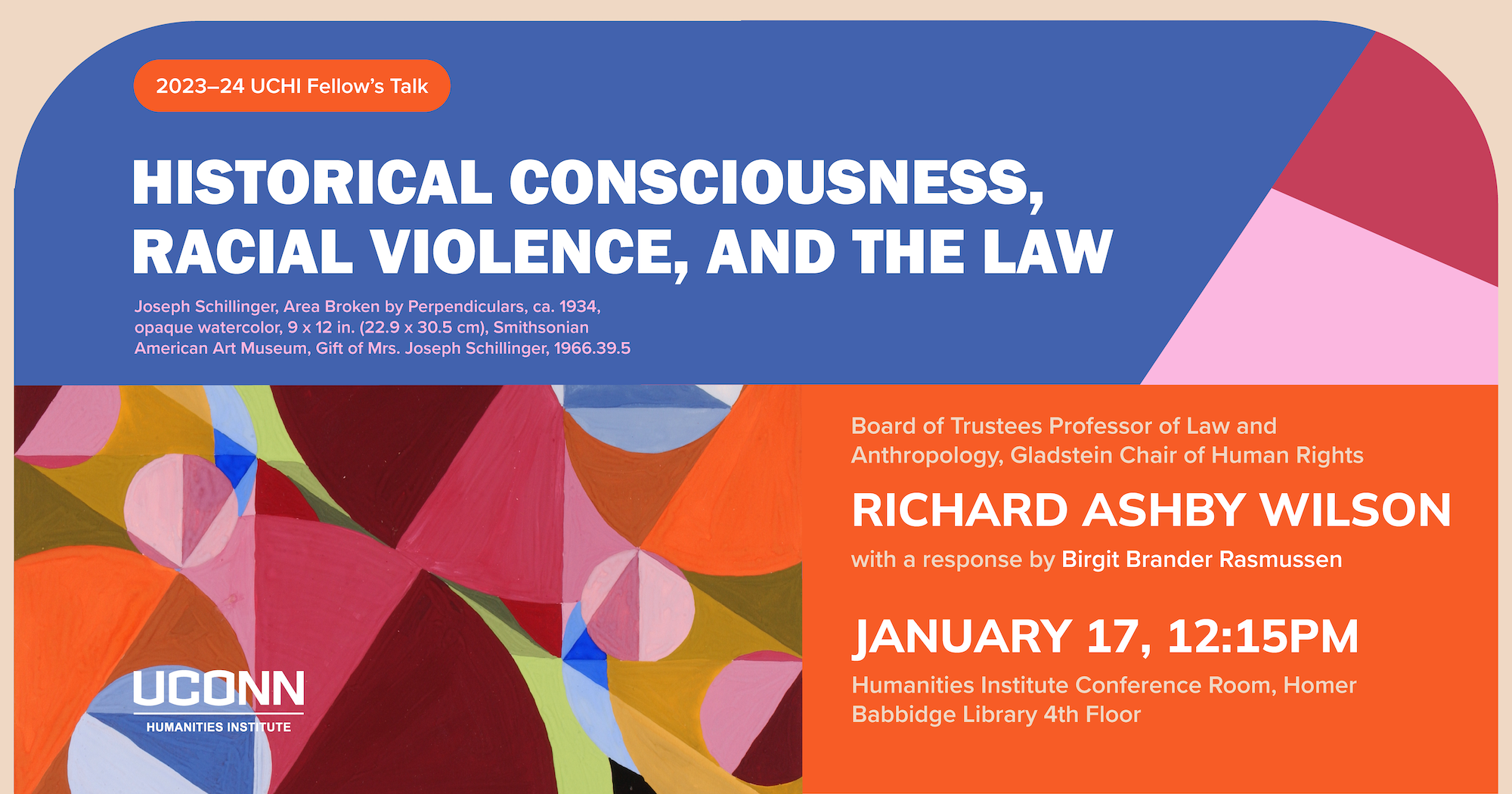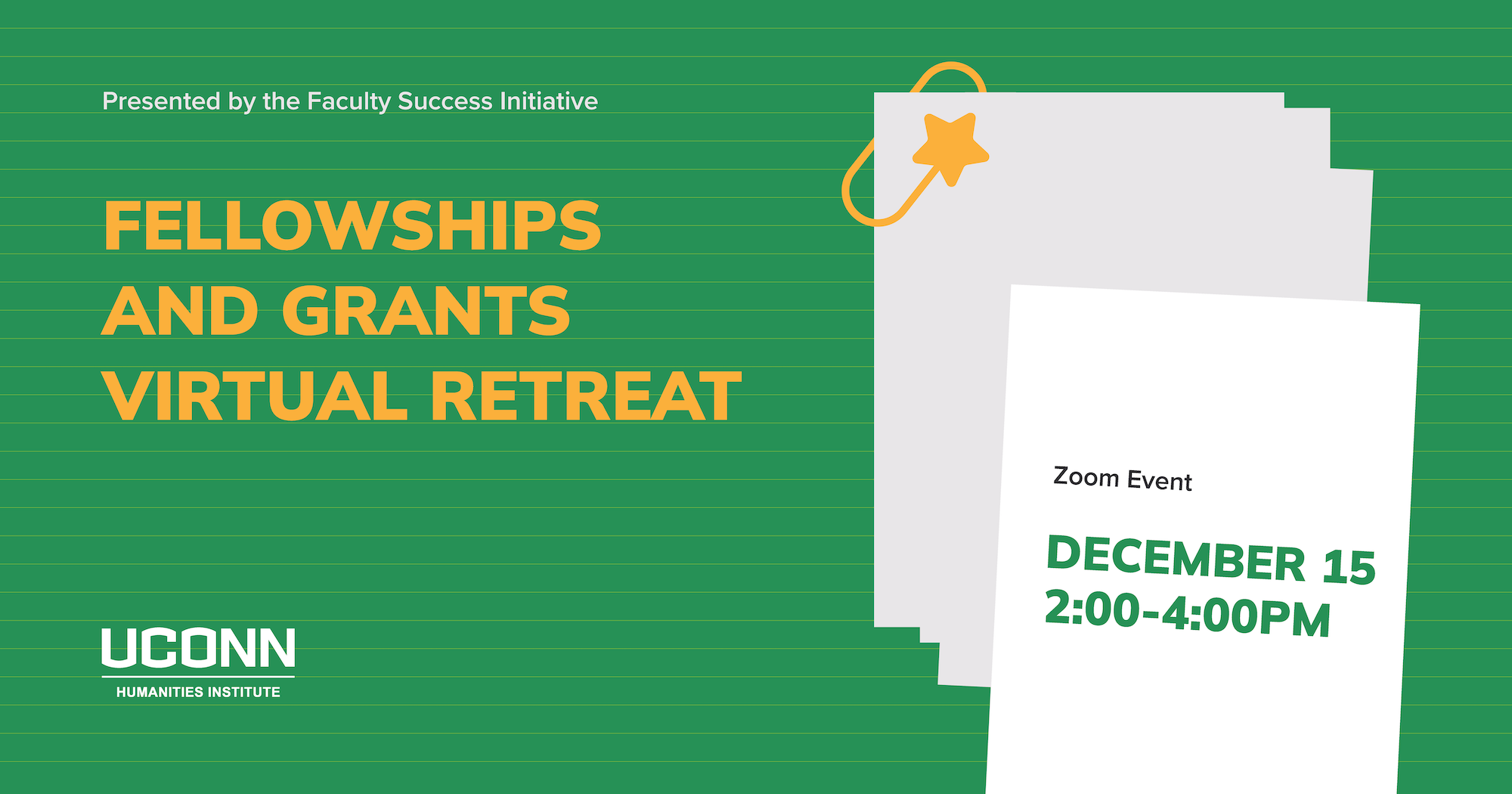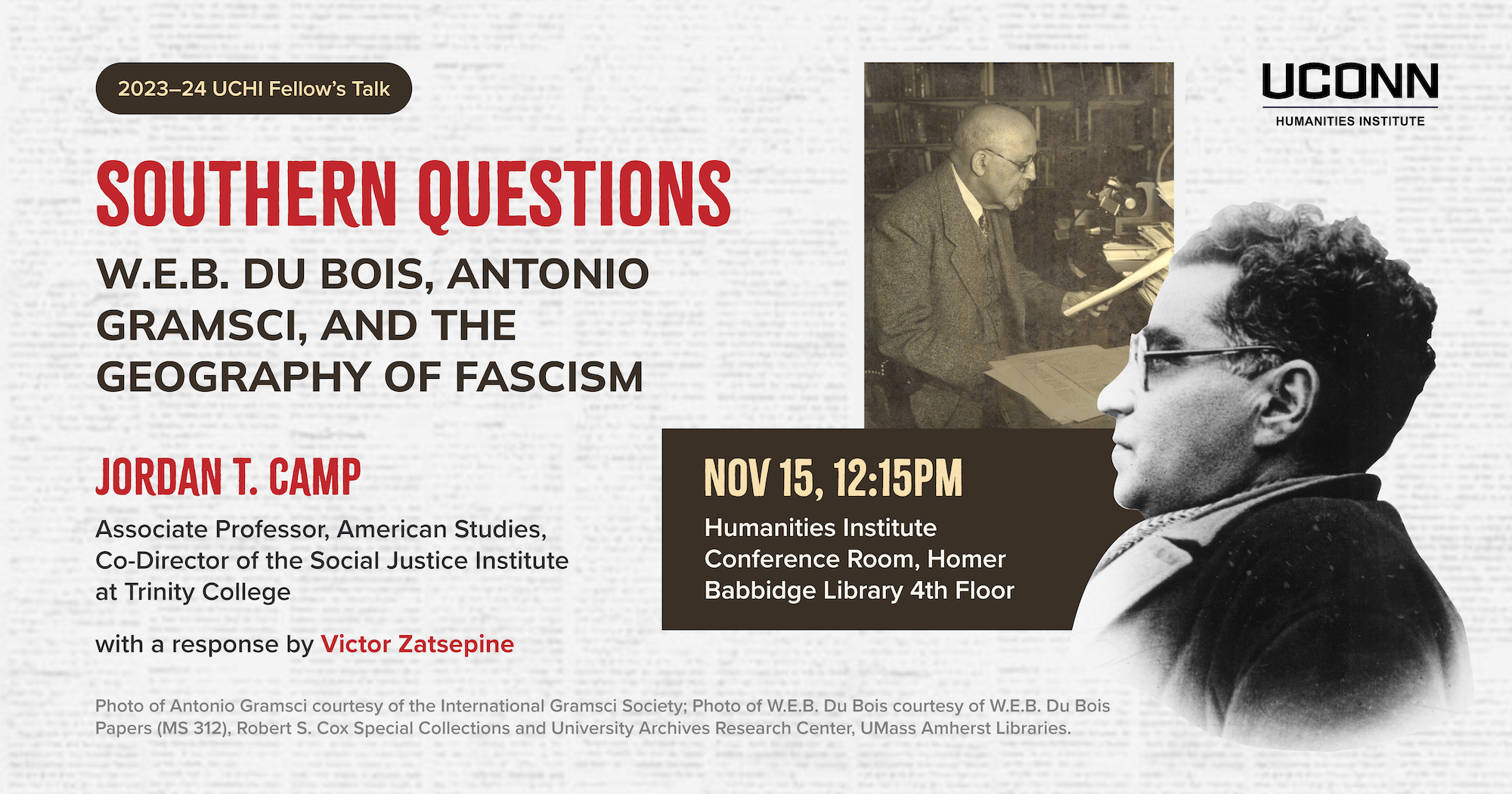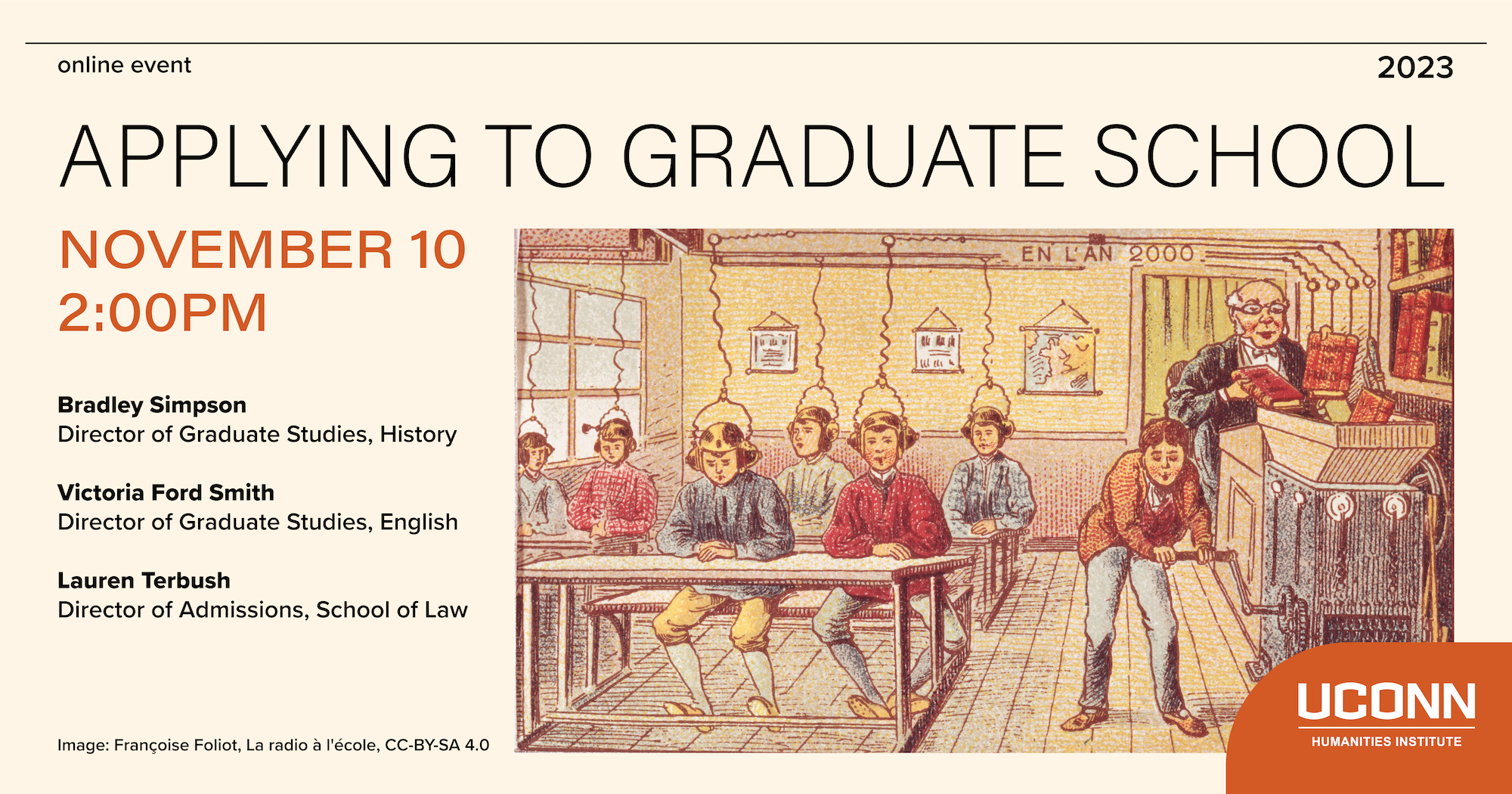Solidarity in Translation: Virgilio Piñera’s Love Letters to Aimé Césaire
Katerina Gonzalez Seligmann (Associate Professor, LCL & El Instituto, UConn)
with a response by Serkan Görkemli (English, UConn)
Wednesday February 14, 2024, 12:15pm, Humanities Institute Conference Room (HBL 4-209)
The event will also be livestreamed with automated captioning.
The final verse of Virgilio Piñera’s famous poem La isla en peso (The Weight of the Island), has become an ambivalent Cuban national refrain. Piñera ends his poem asserting “el peso de una isla en el amor de un pueblo” (the weight of an island in the love of a people). The verse conveys an island weighed down in the love of its people. This structuring ambivalence between love and weight tempers the redemptive possibility of erotic desire against colonial histories and presents that is also Piñera’s signature offering in the poem. This ambivalence recalls the structure of another highly influential poetic signature: Aimé Césaire’s. Piñera self-published La isla en peso the very same year that Césaire’s Cahier d’un retour au pays natal (Journal of a Homecoming) was published in Havana, 1943. Earlier that year, Piñera also translated Césaire’s poem “Conquête de l’aube” (Conquest of dawn). Both of Césaire’s poems leave obvious residues in Piñera’s own poem; Césaire’s influence also marks Piñera’s controversial reception in both public and private among Cuban poet-critics. In this presentation, I consider Piñera’s almost-ideal work translating Césaire and his innovative dialogue with Césaire in La isla en peso as love letters to Césaire. I read the weight of Césaire in Piñera’s poetics as the weight of a love that is both personal and aesthetic—towards Césaire the poet—and social—towards Cuba as a part of the Caribbean, and I reconsider Piñera’s poetics through his loving and productive literary submission to Césaire.
Katerina Gonzalez Seligmann (they or she pronouns) is a scholar of Caribbean literature and intellectual history, a literary translator, and the author of Writing the Caribbean in Magazine Time (Rutgers University Press, 2021). Seligmann is an Associate Professor of Spanish and Caribbean Studies at the University of Connecticut in the Department of Literatures, Cultures, and Languages and El Instituto: Institute of Latina/o, Caribbean, and Latin American Studies. Seligmann’s essays on Caribbean literary magazines, literary infrastructure, translation, and other forms of intellectual travel appear in MLN, Small Axe, South Atlantic Quarterly, The Global South, The Journal of Latin American Cultural Studies, Continents manuscrits, and more. Their translated books include José Ramón Sánchez’s The Black Arrow (Linkgua 2023, translated with Esther Whitfield) and Legna Rodríguez Iglesias’s Spinning Mill (Cardboard House Press, 2019). As a fellow at the Humanities Institute, Seligmann advances a book-length study of the dynamics of solidarity and translation that comprise Aimé Césaire’s Spanish-language legacy called “Solidarity in Translation: Aimé Césaire and His Cuban Comrades in Art.”
Serkan Görkemli (he/him) is originally from Türkiye and is an associate professor of English at the University of Connecticut in Stamford. His research and publications focus on LGBTQ+ literacies and storytelling. He is the author of two books: Sweet Tooth and Other Stories, a collection of interconnected LGBTQ+ short stories set in Turkey (University Press of Kentucky, 2024; 2022 prose selection for UPK’s New Poetry and Prose Series), and Grassroots Literacies: Lesbian and Gay Activism and the Internet in Turkey (SUNY Press, 2014; 2015 Conference on College Composition and Communication Lavender Rhetorics Book Award). Serkan has a PhD in English with a concentration in Rhetoric and Composition from Purdue University. While at UCHI, he will complete his third book, You’re Always Welcome Here.
Access note
If you require accommodation to attend this event, please contact us at uchi@uconn.edu or by phone (860) 486-9057. We can request ASL interpretation, computer-assisted real time transcription, and other accommodations offered by the Center for Students with Disabilities.
